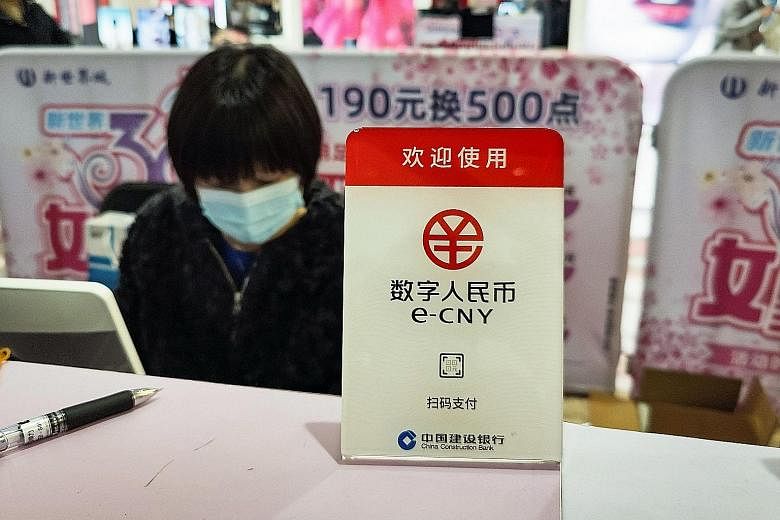BEIJING • China sought to allay fears that it wants to topple the US dollar as the world's main reserve currency, as Beijing makes bigger strides in creating its own digital renminbi.
People's Bank of China (PBOC) deputy governor Li Bo said the goal for internationalising its currency is not to replace the dollar, and the efforts to create a digital renminbi are aimed at domestic use.
"For the internationalisation of the renminbi, we have said many times that it's a natural process, and our goal is not to replace the US dollar or other international currencies," Mr Li said on a panel at the Boao Forum on Sunday. "I think our goal is to allow the market to choose, to facilitate international trade and investment."
China's central bank is currently testing the use of a digital renminbi in various pilot programmes across the country.
The PBOC has been working on a digital currency since 2014 and its moves have heightened interest among central banks and policymakers, while the spread of cryptocurrencies has added to a sense that competitors to regular cash could change how the financial sector operates.
The PBOC has moved closer to becoming the first major central bank to launch a virtual currency, rolling out a trial for consumers and businesses in 11 cities across the country.
"The motivation for the e-yuan, for now at least, is focusing primarily on domestic use," Mr Li said.
International "interoperability is a very complex issue and we are not in a hurry to reach any particular solution yet", although there could be cross-border use in the long term, he added.
The central bank is planning to test the cross-border use of the digital renminbi at the 2022 Beijing Winter Olympics, Mr Li said.
Mr Agustin Carstens, general manager of the Bank for International Settlements, said on the same panel that there was huge potential in the cross-border use of digital currencies as they could make foreign exchange transaction and payment settlement extremely efficient.
While the digitisation of the renminbi could benefit its use in cross-border transactions, the key factor in determining the currency's global role is whether China will relax its capital controls, said chief economist Shen Jianguang at JD.com. "If you want to have a global reserve currency, you need to allow foreigners to hold it, to use it."
China has seen a flood of capital flows into its financial markets since last year, boosting the amount of renminbi traded globally.
Yet foreign ownership of local stocks and bonds remains relatively low at around 5 per cent and 3 per cent respectively. The renminbi's share of global payments and central bank reserves is still only about 2 per cent.
BLOOMBERG

